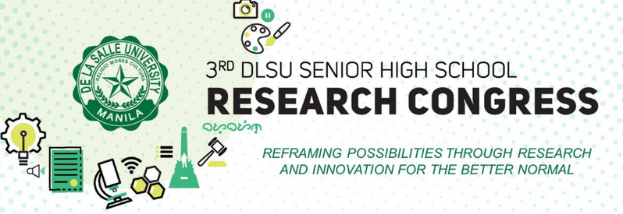Document Types
Paper Presentation
Research Theme (for Paper Presentation and Poster Presentation submissions only)
Family, Relations, and Social Structure (FRS)
School Name
De La Salle University Integrated School
Start Date
29-4-2021 1:00 PM
End Date
29-4-2021 3:00 PM
Abstract/Executive Summary
This study will look through Bandura’s Social Learning Theory perspective on how parental influence predicts Filipino adolescents' externalizing behaviors. As children are impressionable, they observe their parents as role models; their behavior development from childhood to adolescence is dependent on parental influence. With this in mind, the study’s research objectives aim to understand how parental influences, such as abusive and antisocial behavior, affect the adolescent’s externalizing behavior and the level of externalizing behaviors among Filipino adolescents living in Metro Manila, Philippines. The researchers then surveyed 202 Filipino adolescents residing in Metro Manila, answering a questionnaire that measured family characteristics, perceived abusive and antisocial behavior of parents, and self-assessed level of externalizing behaviors. The data gathered was processed through descriptive and inferential statistics, and the results concluded that family influence does have significance in the adolescent's externalizing behavior. In conclusion, through Social Learning Theory and the data collected, the adolescent's externalizing behaviors were found to be due to family influence.
Keywords
Adolescents, Externalizing Behaviors, Family Influence, Social Learning Theory, Perceived Abusive Behaviors of Parents
Initial Consent for Publication
yes
Externalizing Behaviors and Family Influences on Filipino Urban Adolescents: A Social Learning Theory Approach
This study will look through Bandura’s Social Learning Theory perspective on how parental influence predicts Filipino adolescents' externalizing behaviors. As children are impressionable, they observe their parents as role models; their behavior development from childhood to adolescence is dependent on parental influence. With this in mind, the study’s research objectives aim to understand how parental influences, such as abusive and antisocial behavior, affect the adolescent’s externalizing behavior and the level of externalizing behaviors among Filipino adolescents living in Metro Manila, Philippines. The researchers then surveyed 202 Filipino adolescents residing in Metro Manila, answering a questionnaire that measured family characteristics, perceived abusive and antisocial behavior of parents, and self-assessed level of externalizing behaviors. The data gathered was processed through descriptive and inferential statistics, and the results concluded that family influence does have significance in the adolescent's externalizing behavior. In conclusion, through Social Learning Theory and the data collected, the adolescent's externalizing behaviors were found to be due to family influence.


